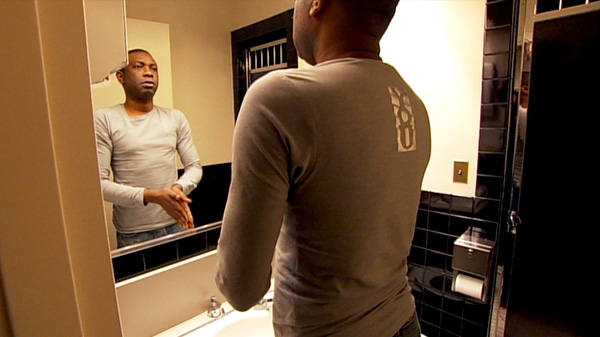|
Reviews of Recent Independent, Foreign, & Documentary Films in Theaters and DVD/Home Video

YOUSSOU N’DOUR: I BRING WHAT I LOVE Through her enthusiasm, director Elizabeth Chai Vasarhelyi convinced Africa’s biggest pop star, Youssou N’Dour, to let her follow him at home and around the world for her first feature documentary, with D. A. Pennebaker’s classic Dylan tour film Dont Look Back serving as the model. With a blessing from N’Dour’s marabout (spiritual guide) and Pennebaker’s son Jojo as one of four cinematographers, she pretty much moved onto the tour bus and into N’Dour’s home. Unlike so many on-camera portraits of global superstars where returning to their roots is an exercise in nostalgia, N’Dour still lives in his hometown, Senegal’s capital Dakar (albeit in a much nicer neighborhood now). The brief introductory biography of N’Dour’s early musical teen prowess in the 1970’s spends little time explaining how he later evolved his internationally popular mbalax sound with his Super Étoile band that combined local rhythms with American rock and jazz. Instead, there are intimate scenes of the well of his inspirations—his faith and his extended family, particularly his griot grandmother, proud he is continuing this long family tradition of musical storytelling. In early 2001, N’Dour decided to make an album that would salute Sufi Islam in combination with his admiration for Egypt as the cradle of ancient African civilization. The country’s also the home of the late singer Umm Kulthum, seen in brief clips, whose Arabic stylings influenced N’Dour vocalization—he grew up hearing her on the radio. After 9/11, he demurred associating his work with a very different, violent strand of Islam and delayed the release of the album until 2004. During an international tour with his Egyptian orchestra, his musicians refuse to go on stage in a Dublin venue that serves alcohol. There’s surprise all around that nobody thought of this in advance, but N’Dour, who regularly performs in his own Dakar nightclub, respects their principles, and for him the Irish stop drinking. No wonder UNICEF appointed him a goodwill ambassador. (He’s also seen testifying to the U.S. Congress in his other ambassadorial role fighting malaria.) But like a prophet without honor in his own country, N’Dour’s marrying of religion and contemporary rhythms is rejected by the Senegalese, as seen in a series of montages about wild rumors in newspapers and on radio, echoing the backlash when gospel singers like Sam Cooke crossed over into R & B. For all the talk about his faith, the religious significance of the songs on the Egypt album is not made clear until more than halfway through the film. While European audiences dance in the aisles and sing along to “Shukran Bamba” and the climactic “Touba—Daru Salaam,” the meanings of these songs visually come to life with striking scenes from the annual Grand Magal pilgrimage of millions of Sufi to the Grand Mosque in Senegal’s sacred city of Touba. Through many rounds of media interviews, N’Dour responds in several languages more patiently than a viewer will. But there is a gem of a sequence at the end of the film when the tour arrives in New York City. Walking anonymously on the streets of Manhattan, he is hailed by thrilled Senegalese cab drivers and street vendors, who are sure he knows them personally. He’s on his way to star at Carnegie Hall, where the camera, a bit heavy-handedly, observes him performing Muslim ablutions in his dressing room under a nameplate of a Jewish donor and a portrait of Jewish maestro Leonard Bernstein. While the
rambling, repetitive look at N’Dour’s life off stage is unevenly edited,
despite being tied together with vibrant graphics, his music is always
gloriously heard and seamlessly presented on stage to an
appreciative global audience.
Nora Lee Mandel
|

